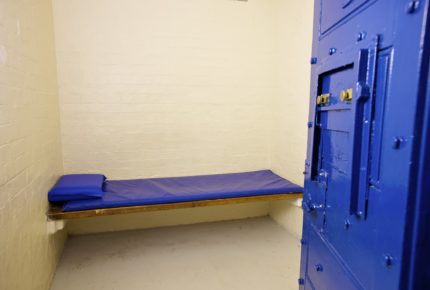

Whether or not you can decline to participate in a police interview depends upon whether you have been arrested. If you have been arrested, you will most likely be interviewed. You cannot refuse to attend this interview, but you can exercise your right to remain silent. This means that you give no answer to the questions put to you, or answer ‘no comment’ to the questions. Alternatively, you could put forward a written statement, or decide to answer all the questions that are put to you. The best approach depends on the facts of your case, and the strength of the police evidence against you. In this article, we look at some of the main considerations around attending, or not attending, a police interview.
Do I have to answer the door for the police?
In short, you must answer the door to the police if they have a warrant to search the premises or if they are there to arrest someone in the household on an indictable offence. In other situations, you do not have to answer the door, though cooperation may be in your best interests in certain situations.
Is voluntary police interview serious?
‘Voluntary’ means something done of your own free will, so in terms of police interviews, a ‘voluntary interview’ means an interview that you can choose not to attend. In this sense, they are not as serious as ones where you are required to attend, but they still play an important role in policing and can have serious consequences.
For example, if you refuse to cooperate, this may lead to the police arresting you so that they can obtain the information that they require to complete their investigation. Once you are arrested, you will not be able to refuse to undergo an interview.
What to do if the police ask you to come in for questioning?
First, check whether you are required to come in for questioning, or whether you have a choice (per the voluntary interview procedure). If the former, you must attend and ensure you have strong legal representation there to assist. If the latter, you can elect whether or not to attend but you should not make the decision lightly. As mentioned, not attending could lead to you being arrested so that the police get their opportunity to speak with you. Contact a solicitor before making this decision if you have time. If you do not, and the police want you to go straight away, make sure you have a lawyer present at the station prior to answering questions.
What happens if I refuse to be interviewed?
Yes, because it is your choice, you can refuse to attend a voluntary police interview. You should know, however, that this may result in you being arrested.
These days, the police are more inclined to invite suspects to a voluntary interview than in the past. As the number of voluntary interviews has increased, the numbers of arrests have declined. That said, it is important not to dismiss the seriousness of a voluntary interview. Regardless of how it is put to you by the investigating officer, a voluntary interview is not just an informal chat. You should take it just as seriously as an interview under arrest. The interview will be recorded, and your answers may be used against you in court. Even where the police have not made it clear to you that you are a suspect, if the information that you give provides evidence that you may have committed a criminal offence, it can be used against you.
Whether or not you should attend a voluntary interview is a strategic decision that has to be made on the facts of your case. If you are confident that you have not been involved in criminal activity, you may be able to provide enough information at a voluntary interview to exonerate yourself and deter any further investigation. If you decide to attend but feel uncomfortable about the direction that the interview is taking, you can leave at any time. You can also ask the police to pause the interview, until you have a solicitor present.
On the other hand, if during the interview, the police gain a reasonable suspicion that you have committed an offence, they could stop the voluntary interview and arrest you. Once you have been arrested, you will not be permitted to leave the police station. The police are allowed to detain you in the police station until they make a charging decision. For non-terrorism offences, the usual custody time limit is 24 hours. However, an officer ranked superintendent or above can authorise your detention for up to 36 hours. For serious offences, this can be extended to 72 hours if the police obtain a warrant for continued detention from the Magistrates’ Court.
What is an adverse inference?
Regardless of whether the interview is voluntary or standard, you will be given a caution prior to its beginning. The caution is a warning that it may damage your credibility if you do not mention when questioned something that you later rely on in court as part of your defence. Essentially this means that if you do not take the opportunity during the police interview to put forward your defence, and you later rely upon something that you could have mentioned during the interview, this may be held against you by the court. This is known as an adverse inference. Say you are accused of burglary. You answer no comment to questions in the police interview regarding your whereabouts on the night in question. However in court your defence is that you were at your girlfriend’s house, with your girlfriend. The court may draw an adverse inference from your failure to mention your defence during the interview.
An adverse inference should not be drawn where there is an innocent explanation for your decision to remain silent. One such innocent explanation is where the police have failed to disclose sufficient information to allow the solicitor to give appropriate advice to the client. In these circumstances, it may be appropriate to answer ‘no comment’ especially where the police evidence against you appears to be weak. By refusing to answer questions, you do not provide the police with any additional information that could be used against you. The justification for this is that you do not have a clear understanding of the case against you.
Can you be charged without being interviewed?
The police can charge you without arresting or interviewing you, where there is sufficient evidence to justify the charging decision. This is more likely to be the case for minor offences such as driving offences where the evidence appears to be obvious and self-explanatory. The decision to charge lies with the police in less serious matters, and with the CPS for more severe offences. In making a charging decision, the police/CPS apply the full code test. This a test that considers whether it is appropriate to present a criminal charge to the criminal court.
This test looks both at whether there is a realistic prospect of conviction, and whether it is in the public interest for the case against you to proceed.
It is not always necessary for the police to arrest or interview you in order to find that the full code test has been met. For example, if the police discover using electronic number plate recognition that you are driving without insurance, they may feel that they have all the evidence they need to secure a conviction.
What happens after a police voluntary interview?
After the interview, the police will continue their investigation and if necessary, call you back for more questioning or make a decision on the case (which could mean a charging decision against you if you are the subject of their investigation, or it could mean a decision against someone else. It could also mean the case is dropped. Because investigations can go on for some time, it may take a while to learn the outcome of the investigation.
Do I have the right to remain silent?
Yes, you have a right to remain silent. You can exercise this right from the moment you interact with a police officer (i.e. when you are about to be arrested) right through to your trial. Whether to do so depends on many factors, and you should consult with a solicitor to figure out whether remaining silent is a good thing in your case. If the police have weak evidence against you, remaining silent could mean they have nothing else to go on and you will be released. If they have strong evidence, though, you could end up jeopardising your defence if you do not share your side of the story.
Where to get further help?
If you have been asked to attend a voluntary police interview, getting the right solicitor on side could make all the difference. At Stuart Miller Solicitors, we will question the strength of the police’s evidence, and help ensure that you are not charged on the basis of unfounded accusations. Contact us for a no obligation consultation today.
OUR COMMITMENTS TO YOU:
-
Responsive
A legal expert will consult you within 24 hours of making an enquiry.
-
Empathetic
We will always treat you with trust, understanding and respect.
-
Specialised
Your case will be handled by an expert who specialises in your type of offence.
-
Proactive
We will take early action to end proceedings as soon as it is practically and legally possible to do so.
-
Engaged
You will be kept updated on your case at all times. We will provide a named contact available to answer your questions.
-
Caring
We understand this is a difficult and stressful time for you and your family. Our team will support you every step of the way.
-
Tenacious
We will never give up on your case. We fight tirelessly to get you the best possible outcome.
